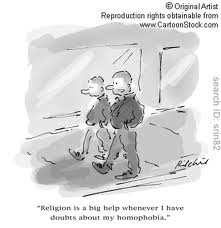Here’s a brilliant, ‘progressive Catholic’ attempt to ‘present the best theodicy possible.’ Adele Gonzales knows about suffering – via losing her beloved father unexpectedly when she was 14; soon afterwards she was shipped to Florida from Cuba without any English language skills; and she’s suffered emotionally, spiritually, physically (rheumatoid arthritis) - and ecclesiastically in a conservative Catholic church - in many ways…
Her vocation includes leading seminars and doing personal spiritual direction with other sufferers. Early in her career, when confronted in a meeting at which she was speaking on all this with a question about God, evil and suffering, her instinctive response was ‘Shit happens!’. Fortunately a wise bishop who was present mollified the shock-and-awe in the place by agreeing with her!
Back to losing her father: because he was a Mason she was told he went to hell: fortunately a wise and caring priest convinced her otherwise, via the story of the Prodigal’s father…
Why 9/11? Well, don’t forget ‘we Americans experienced on our own soil the terror, despair, and powerlessness other nations live with every day’. And Hurricane Katrina? ‘The entire world saw firsthand the poverty and misery of the black community… [and witnessed] city leaders blaming state leaders who in turn blamed the federal government’. How does one make sense of the Haitian earthquake? God’s vindictiveness over their voodoo superstitions? No. Haitians – 80% of whom are Catholic – believe God is good, even though life is hard: La vie est dure, mais Dieu est bon.
Who is this God?
I am in the air you breathe;
I am in the wind you ride;
I am in the song you sing;
I am in the tears you cry.
I am living water;
I am dance and song;
I am pain and sorrow;
I am fire and love.
I am the one living God:
I am the fountain of life;
I have come to bring you peace;
You are unique and you are mine…
How does God best do that? By becoming incarnate in Jesus and suffering with us and for us. (Versus the traditional nonsense about God being ‘impassible’ – not able to experience suffering).
How does God best do that? By becoming incarnate in Jesus and suffering with us and for us. (Versus the traditional nonsense about God being ‘impassible’ – not able to experience suffering).
But yes, evil is always the greatest obstacle to believing and trusting in God. As theologian Hans Kung wrote: suffering or evil is the ‘acid test’ for every religion.
Christians have tried to theologize it all via the Augustinian notion of original sin. But Sister Gonzales would prefer to say that though evil and suffering are real, as Anne Frank writes in her diary while hiding from the Nazis in Amsterdam: ‘Everyone has inside of them a piece of good news. The good news is that you don’t know how great you can be! How much you can love!’
· Structures and institutions? ‘Sometimes I sense darkness in the room, and have to leave immediately…’ Their crimes against the common good go beyond the accumulation of the sins of their members… (Example: those who manage the institutions of the church and its finances are mostly removed from the Church’s pastoral life).
· Hell? It’s not so much about fire and heat as about the absence of God.
· A great contemporary evil? ‘Noise’: ‘I don’t blame Apple, or Sony, or any other corporation for the noise, but I think the evil of greed lurking in the background has a lot to do with it.’
· War? As Pope John Paul II said: ‘War is not always inevitable. It is always a defeat for humanity’. But we didn’t listen, and invaded Iraq anyway…
· Unforgiveness (to an angry divorced woman): ‘This jerk made your life miserable for ten years and now you’re giving him fifteen more free of charge so that he can continue to ruin your life?’ Result: an instant ‘aha’ experience and the woman decided to get counseling. Forgiveness takes place in 5 different contexts – Accepting God’s forgiveness, forgiving ourselves, asking to be forgiven, forgiving God, forgiving others (people, communities, institutions)…
Gonzales’ conclusions:
· ‘It may sound crazy, but I believe that without the energies of love, pain, anger, and many others, creation would be less than it was meant to be. Growth and development involve change, and change is always painful and frustrating. [So let us] put our energies… into positive actions that could lead to healing, rather than in wasting them in hatred, anger, and revenge.’
· ‘I know I am a better person because of… evil. My father’s sudden death, our exile from our country of birth, my mother’s blindness, my little cousin’s leukemia, the struggles to finish graduate school, my many illnesses since I was young… are experiences which have made me the person I am today. I believe that the greatest good that has come out of these “evils” is the ability to empathize with someone else’s pain and to walk in their shoes, to be a woman of hope, to enjoy and share a great sense of humor, and to believe without any doubt in the goodness of God and of the universe…’
· Yes there’s mystery here: and by definition a mystery is unknowable. But as an eastern spiritual master put it, wisely: ‘Pain is part of living, but suffering is optional’. Francis of Assisi endured a lot of physical, emotional and spiritual pain, but he was joyful. William O’Malley: ‘The sufferings of Christ did not cease when Jesus died. Christ still suffers when we suffer, and – we trust – our suffering is redemptive just as his sufferings were redemptive’
· Finally, Richard Rohr: ‘If you do not transform your pain, you will surely transmit it to those around you and even to the next generation’.
Rowland Croucher
September 2011
jmm.aaa.net.au
September 2011
jmm.aaa.net.au













